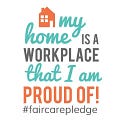3 ways Roma is surprisingly relevant today
The Roma hype is real: This movie is rightly being talked about for its stunning black and white cinematography, its moving, naturalistic storytelling, and the incredible lead, the character Cleo (an Oscar-nominated performance by first-time actress Yalitza Aparicio, a Mexican woman of indigenous descent). While the black & white look and the subtitles may make Cleo’s story feel like it comes to us from a faraway time and place, Roma has a lot to tell us about domestic work in the U.S. today.
As the National Domestic Workers Alliance, the leading organization for domestic workers in the US, says, “There are millions of Cleos all over the world.”

While Mexican society in the 1970s is of course distinct from, say, the United States in 2019 (our cars are way less cool!), you could teach a whole class on the political, social, and economic threads of Roma and how they echo throughout our lives today.
In fact, Roma is more relevant today than ever. Here are 3 things that might seem outdated or foreign, but are actually still a part of millions of homes, families, and lives:
1) Cleo lived in her employer’s house and had little control over her life. It’s not like that now … is it?
It’s true that most people, even the wealthy, don’t employ live-in domestic workers today. However, commuting to someone’s home, working behind closed doors, still puts today’s workers in a precarious position.
There’s an estimated workforce of 3 million domestic workers in the US today who clean homes, help working parents raise kids, and support seniors and people with disabilities.
While that’s (obviously!) super important work, many work without written work agreements, few or no benefits, and fewer federal labor protections than other workers. (Minimum wage? Nope. Sexual harassment protection? Nuh-uh.)
2) Cleo basically raises those kids. Today’s helicopter parents would never let that happen … would they?
In Roma, we see Cleo waking the kids up for school and putting them to bed at night, singing lullabies in her native Mixtec.
While the parenting fashion today is much more hands-on, it can be hard for parents who hire childcare providers to recognize just what an important relationship develops between a child and a caregiver.
If the parents are mostly at work while their employee is looking after their kids, it can be all the more invisible. But what an essential part of the job that emotional labor is!
3) Only rich families hire domestic workers … right?
Once upon a time, hiring a domestic worker (a childcare provider or house cleaner, or positions once referred to as butlers, servants, nurses, or maids) was for Downton Abbey-types with castles or penthouses.
But as two-working-parent families have become the norm, and jobs have become more demanding, and so-called “sandwich generation” adults have both kids and parents to support, many are hiring cleaners, childcare providers, and home attendants to help.
With websites and platforms facilitating the process now, it’s easier than ever to decide to go for it. In fact, many more would hire if they could, or offer their employees far more hours. While statistics aren’t really available for this kind of thing, we’d venture to say there are probably far more employers now than in Cleo’s time.
So what does it matter that the story of Cleo and her employer’s family isn’t so far from the reality of domestic workers and employers today? Well, millions of domestic workers, mostly women of color and immigrant women, are supporting the lives of millions more people, but often for too little pay and too little in the way of legal or financial security.
And that’s a systemic issue. As Roma beautifully illustrates, the relationships are complex webs of power dynamics, professionalism, and familial bonds. Today, most American families need more support than they can afford. But without more help from our government — or a more equal society to begin with — workers and employers are pitted against each other as each try to make their careers and lives work.
The good news today is that domestic workers are more organized than they’ve ever been, and what’s more, they’re one of the driving forces of an inspiring, intersectional movement for social justice today. In the era of #Resist, #MeToo, and #NoBanNoWall, domestic workers are on the front lines as leaders. And this year, after years of winning state-level victories, they’re introducing a national Domestic Workers Bill of Rights.
As employers who know that domestic work makes all other work possible, we know we’ll be the first to stand up and join them in this fight. Now more than ever, let’s be there for each other. You can take the first step right now by signing on in support of a Federal Bill of Rights, or joining Hand in Hand: The Domestic Employers Network, where we fight alongside domestic workers and advocate for more accessible, affordable support for all who need it.
Follow Hand in Hand on Facebook to catch our upcoming live conversation, where we’ll talk more about Roma, domestic work, and its relevance for feminism and social justice today!
